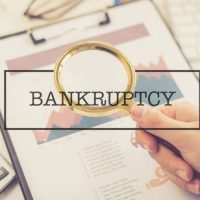Questions about the Automatic Stay

One of the most powerful benefits of filing for bankruptcy is the protection afforded by the automatic stay. As some of our readers know, the stay immediately halts any collection efforts, such as a car repossession or a home foreclosure. Any creditor who violates the stay could get in trouble with the court. The stay also stops any other collection activity, such as telephone calls or letters demanding repayment of a debt.
At Nowack & Olson, we field questions all the time about bankruptcy, including the automatic stay. Below are answers to some common questions.
When Does the Automatic Stay End?
An automatic stay typically ends after one of the following:
- Your case is closed.
- The court denies your bankruptcy petition.
- You are granted a discharge from bankruptcy.
- The court dismisses your case.
If you hire an experienced bankruptcy attorney, your case should not be dismissed, and your petitions should not be rejected. In most cases, our clients have their automatic stay in place until they are granted a discharge from bankruptcy.
Are there Exceptions?
Yes. Your creditor can ask the court to lift the stay and allow them to continue with their debt collection. This does not happen as often as people assume but can certainly happen in some instances. For example, a creditor with a secured debt (backed by collateral) might ask to lift the automatic stay so that they can seize the collateral.
Other times, the court will lift a stay where the debt cannot be discharged in bankruptcy. As an example, child support and alimony payments are not dischargeable, so judges often lift the stay, allowing people owed money to continue with wage garnishments or other collection efforts.
What if a Creditor Violates the Automatic Stay?
You should immediately tell your attorney. They will be able to act to protect your rights. Share any documentation you have, such as letters, voice mails, or notes you have taken.
Depending on the violation, the creditor could get into big trouble. If the violation was willful, then the bankruptcy code allows you to receive actual damages, punitive damages, and attorneys’ fees. For example, a creditor who seizes your car in violation of the stay might need to reimburse you for the value of the car or return it if it is still in their possession. They might also need to pay an additional sum as a penalty, along with your lawyer’s fees.
If the violation was not willful but unintentional, then whatever collection action could be void, and the creditor might have to pay actual damages.
Interested in Filing for Bankruptcy? Speak to a Plantation Bankruptcy Lawyer
The automatic stay offers powerful protection to debtors and can help you gain some breathing room as your bankruptcy works its way through the courts. At Nowack & Olson, we will gladly help you seek the full protection of the automatic stay by filing for bankruptcy in the appropriate court. To get started, please call 866-907-2970 for your free consultation. With offices in Doral, Coral Gables, and Jupiter, we are never far away.
Resource:
law.cornell.edu/uscode/text/11/362
